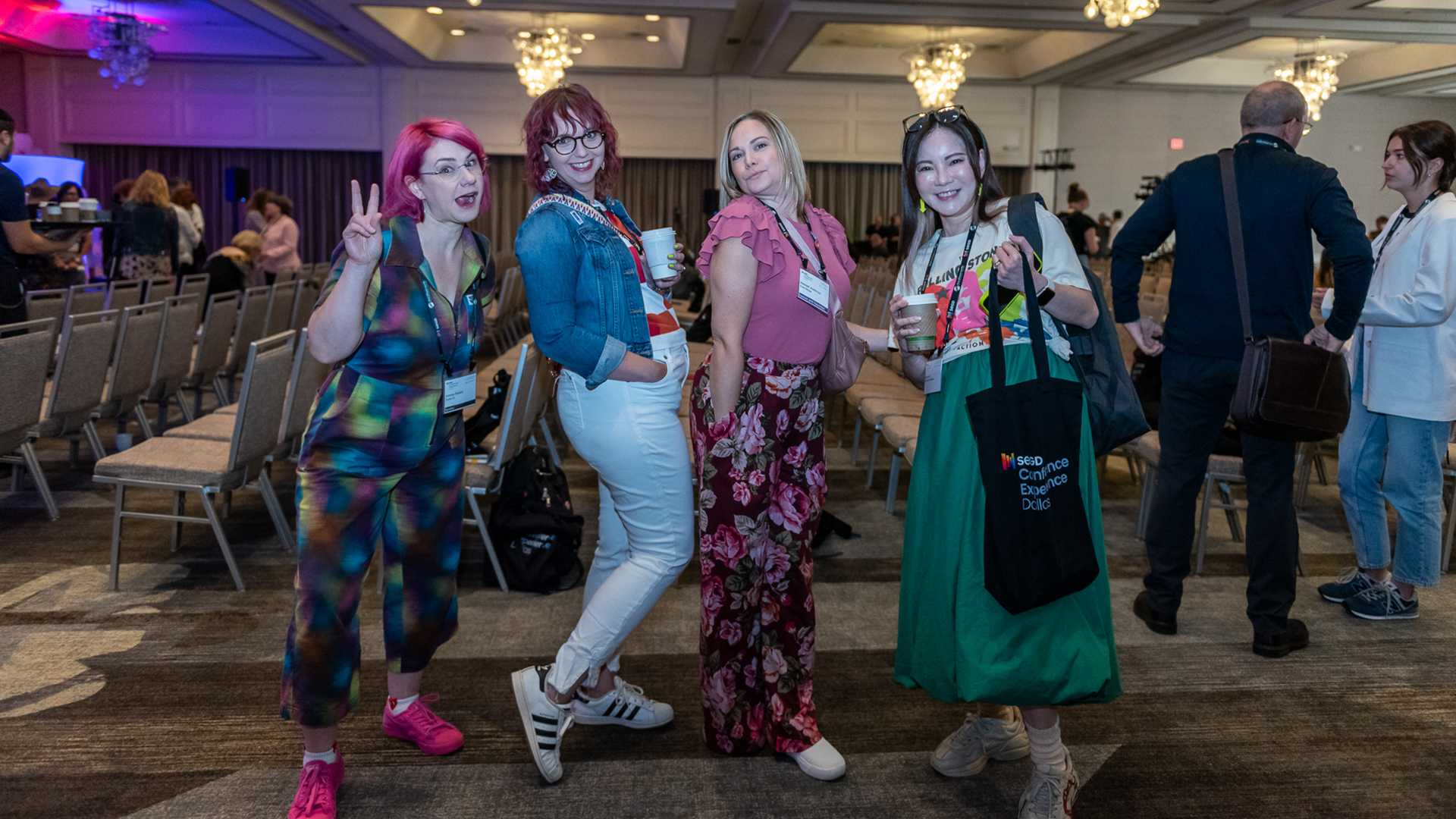Finding My Place in SEGD: A Journey of Community and Purpose
SEGD Board Member & Chapter Chair Liaison Darlene Van Uden of Elevate shares her experience finding community through SEGD.
At a recent Board of Directors meeting, each of us was asked to answer five simple questions: who we are, what we practice, what inspires us, what SEGD means to us, and what we hope the organization can do in the coming year. As I often do, I waited until the flight to the meeting to gather my thoughts and find the exact words that best expressed my answers.

One of the easiest questions to answer was what SEGD is to me: community. Not just a place where people know my name or understand what I mean when I say “wayfinding.” SEGD is all that and more—a place where I’ve met people of incredible humor, perception, care, and emotional depth. It’s a community filled with individuals who care deeply about others and their experiences as they move through the world.
They are working behind the scenes to improve your next journey—through a city, a transit station, an airport, a museum, a school, a campus, or a stadium. They shape light, layout, and form to immerse you in ideas, eras, artworks, and artifacts. They experiment with technology to enhance the experience of a place. They ask tough, thoughtful questions and embrace complex challenges without hesitation.
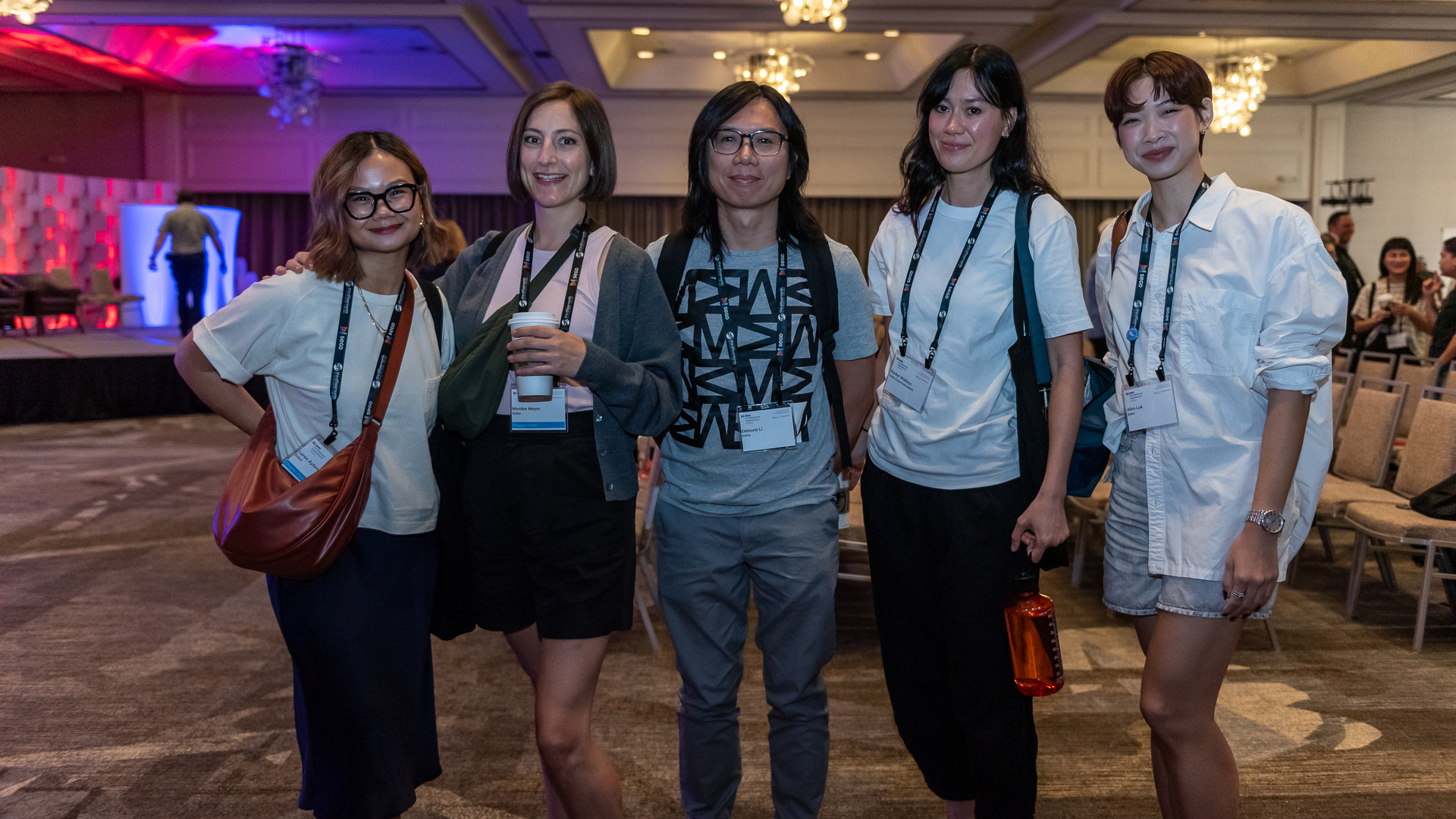
From the moment I connected with this community, I knew I had found where I belonged. I’m energized by our shared purpose: to improve the experience of others. That purpose led me to become more involved—sharing my journey into experience design with our emerging professionals (EXP), volunteering to organize conference tours, starting a local Chapter, and my current role of Chapter Chair Liaison to the Board of Directors. All of these steps were encouraged and supported by mentors, friends, and fellow members.
Each step required more time, but every one of them repaid me in personal and professional growth. I’ve learned to approach people with more curiosity and openness, to say “yes” when invited to share my experiences, and to lead with empathy and awareness. I’ve learned to consider other perspectives and (sometimes) hold my opinions until I’ve truly listened. After all, listening is one of the best ways to understand how someone perceives a moment or a place—or how they hope to solve a challenge. When we listen, we learn. And when we learn, we’re better equipped to solve the next problem—with greater empathy, insight, and care.
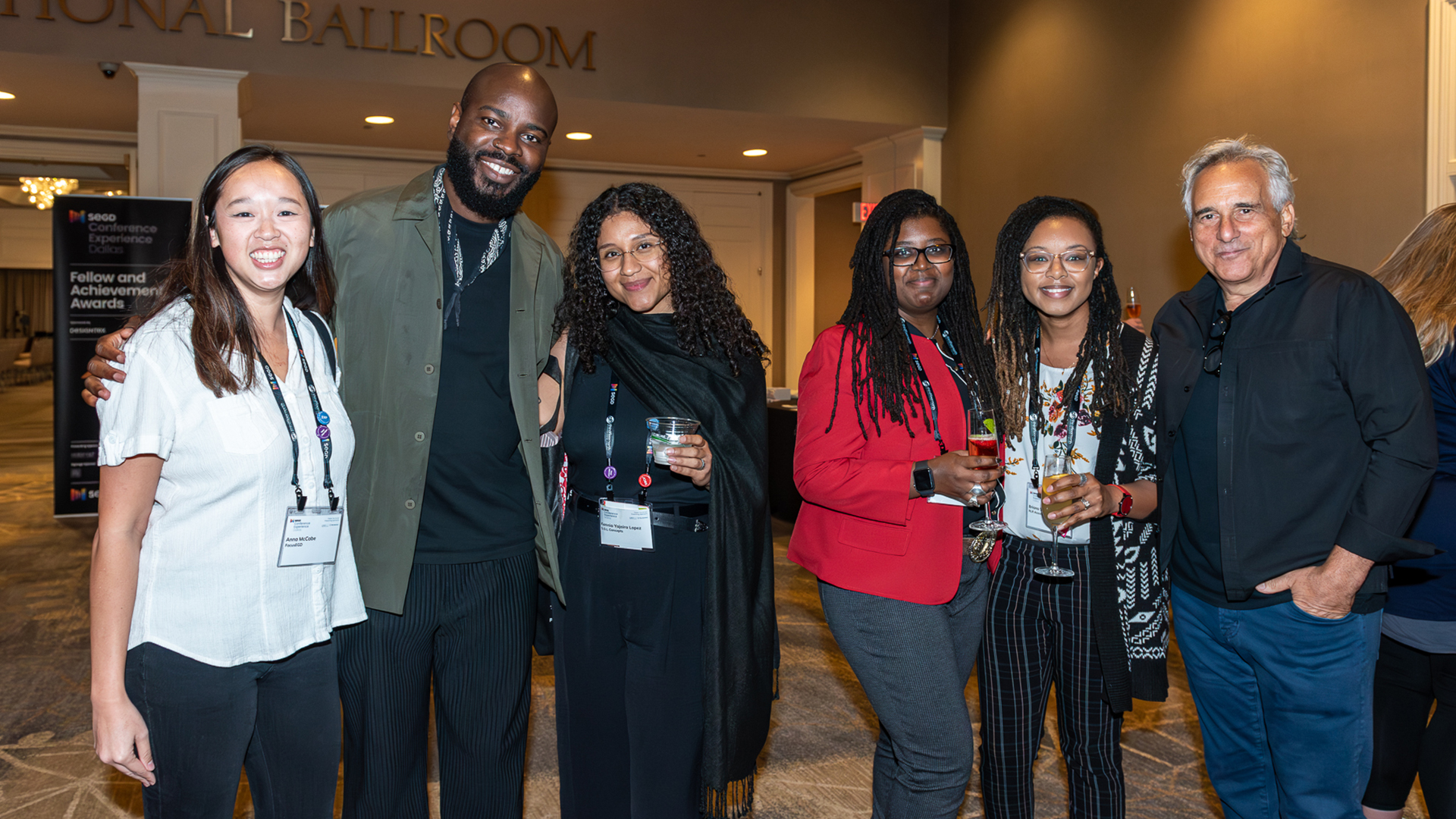
My involvement in SEGD is grounded in a simple belief: every interaction has the potential to make me a better version of myself—for my work, my colleagues, and my community. When asked what I hope SEGD can do in the coming year, my answer was this: I hope we find our way to new audiences, allies, ambassadors, and avenues. I hope we connect with those who don’t yet know they need us.
If you’re looking for a space where you can explore ideas without competition or judgment—where you can collaborate with people who share your passion for crafting meaningful experiences—you have found it. We are SEGD—and we’re here to welcome new members to our community. Maybe that’s you.
People also viewed
-
Membership May 2025: The Power of Design Begins with Community
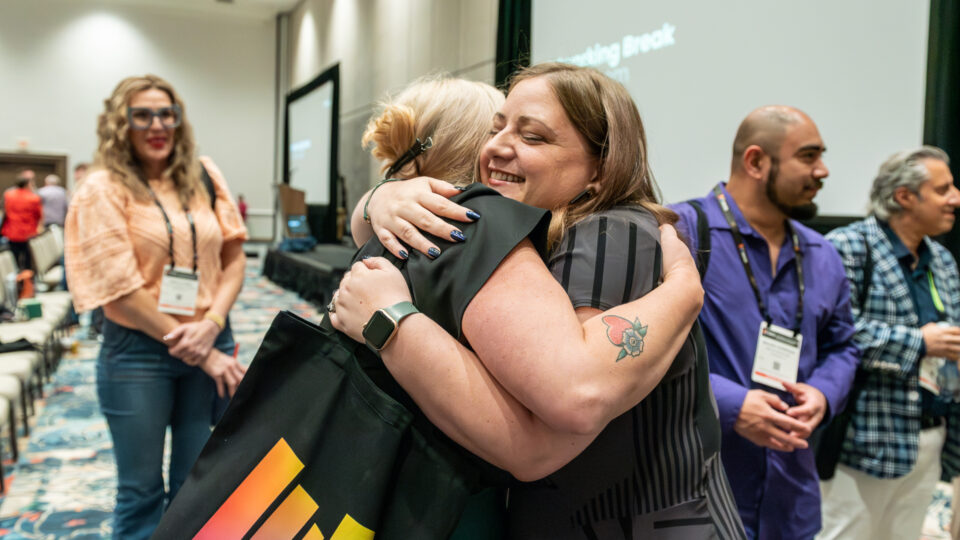
Membership May 2025: The Power of Design Begins with Community
-
Empowering Every Stage: How SEGD Supports Your Professional Journey
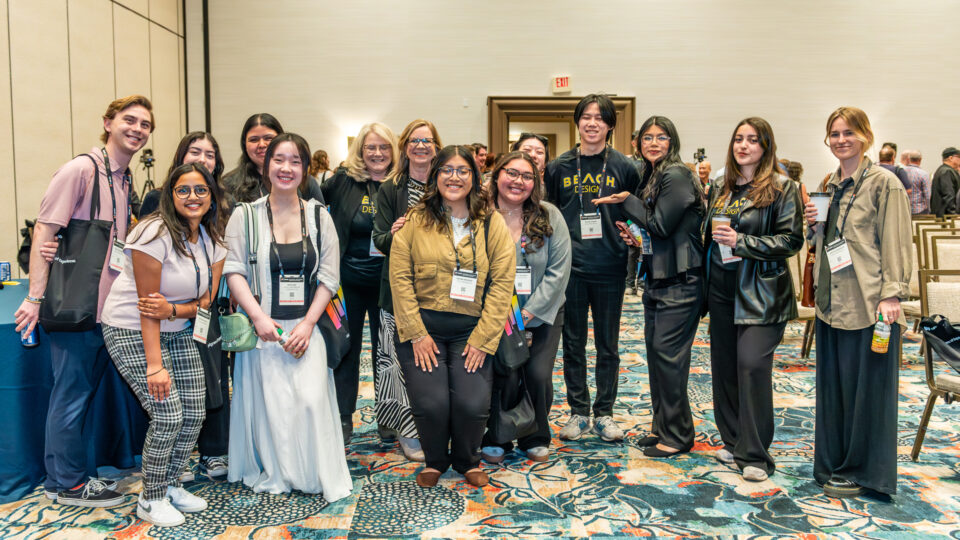
Empowering Every Stage: How SEGD Supports Your Professional Journey
-
2025 Q1 CEO Update: SEGD’s Purposeful Design & Strategic Collaborations

2025 Q1 CEO Update: SEGD’s Purposeful Design & Strategic Collaborations
